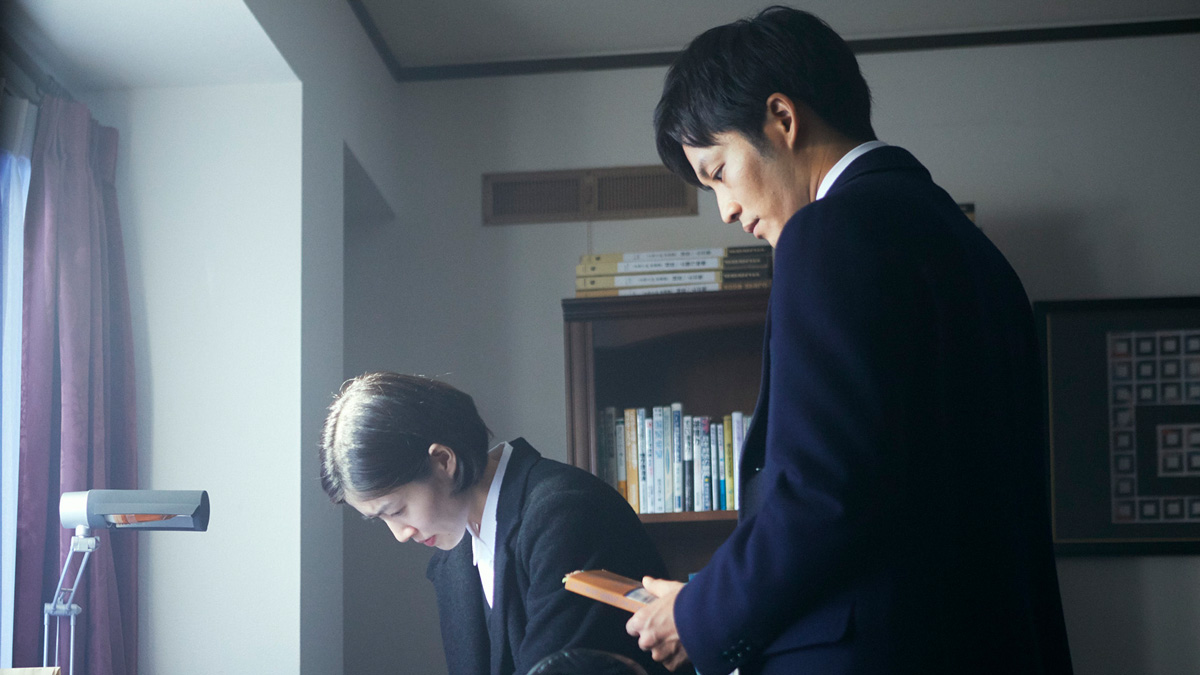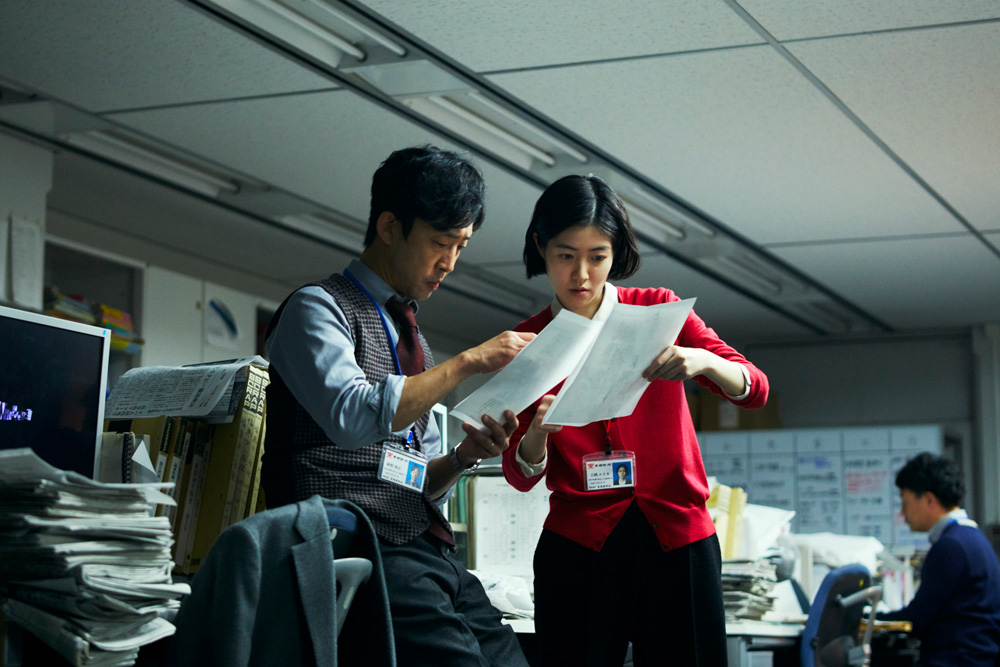
(C) 2019 “The Journalist” Film Partners
Cutting reality in the context of fiction: The ``young sensibilities'' that ``The Journalist'' brought to social films
2020.04.03
Establishing a “precedent” that “you can draw up to this level”
What was so striking about “The Journalist”? One of the reasons is that it combines sociability, contemporaryity, and entertainment.
Works that focus on social issues (including documentaries) can depict only The Truth, but when it comes to fiction that uses famous actors, there are many restrictions. If we were to use the production committee method, we would be able to obtain funding, but we would be under more constraints. In light of the world situation, there will likely come a time when changes will be required, such as with the aircraft carrier Ibuki (2019).
``The Journalist'' was born under such circumstances, and because it is such a work, it has an exquisite sense of balance that makes you feel the painstaking efforts of the production team. It is clear that the film was made with great care, carefully identifying the limits of what it wanted to convey, what it wanted to portray, and what it could do now, while at the same time ensuring that it did not fall apart as an entertainment piece. Just imagining it is a thorny road, but I also think that there are very few works of this type in Japan in the first place.

“The Journalist” (C) 2019 “The Journalist” Film Partners
Speaking of Japanese social entertainment works, in recent years I would probably think of `` Shin Godzilla '' (16) and `` Fukushima50 '' (2020). The former includes the essence of ``3.11'' and depicts ``If Godzilla appeared in present-day Tokyo, how would the government respond?'' The latter is a story that celebrates the courageous actions taken by employees of the Fukushima Daiichi Nuclear Power Plant during the Great East Japan Earthquake. However, even if you include `` Shoplifters '' (2018), for example, the number is still small compared to Western countries.
On the other hand, let's take a look at recent social-minded works from overseas.
Do you know the drama “The Morning Show” that is currently available on Apple TV+? Directed by Mimi Leder, who directed Deep Impact (1998), and co-stars Jennifer Aniston, Steve Carell, and Reese Witherspoon. In this video, there is a scene in which the host of a news program who was accused of sexual harassment quits and screams, ``I'm not Weinstein! It was consensual,'' as well as some harsh jokes using ``MeToo.'' do.
In the movie `` Scandal '' (2019), which is also a live-action version of the sexual harassment scandal behind a news program, you can see a scene in which a new anchor, played by Margot Robbie, is victimized and her voice trembles as she cries. This is a powerful piece of work that makes a strong case for how vulnerable women were when faced with power.
"Scandal" trailer
I wonder if `` Spotlight: Scoop of the Century '' (15) depicts journalists. Here, a shocking story unfolds that exposes the reality of sexual abuse by Catholic priests. `` Pentagon Papers '' (17), which explores the government's cover-up of The Truth of the war; `` Zero Dark Thirty '' (12), which depicts the behind-the-scenes of Osama bin Laden's assassination; facts about CIA torture; There are many social suspense stories based on true stories, such as `` The Report '' (2019), which exposes people to the light of day. In South Korea, there are many excellent social works, from `` Taxi Driver: Promised Across the Sea '' (2017) to `` The Day the Nation Goes Bankrupt '' (2018).
As with these works, there is a trend in Europe and the United States (as well as in South Korea) of visualizing ongoing or recent social issues with major staff and casts (of course, all projects are smoothly completed). Although it is not possible to go there). However, it is also true that it is currently difficult to create such a framework in Japan. Maybe there is a barrier to expression, maybe it's difficult to get funding, maybe it's because the audience isn't following. It's probably not a simple reason.
However, that is precisely why ``The Journalist'' is a work that brought hope to this country. ``I've drawn it up to this point. From here on, it's the turn of the next creators.'' This work can be said to have set a ``precedent'' for the present and the next generation.
This year, when Bong Joon- Parasite '' (2019) became the first foreign language film to win the Academy Award for Best Picture, ``Japanese movies'' became a trend on social media. ``Trending'' occurs when a certain word is posted a large number of times in a certain amount of time, but the tweets that are posted are not necessarily positive. Many negative voices saying ``Japanese movies are no good'' overwhelm the encouraging voices saying ``Let's do our best in Japanese movies!''
“From Miyamoto to you” trailer
I'm not sure what the term "Japanese film" referred to here means, but I just want to tell you that it's not like that. For example, many works have been developed, such as `` From Miyamoto to You '' for extreme expressions, and ``The Journalist'' for social aspects (both are mainly produced and distributed by Star Sands).
The former is Tetsuya Mariko, the latter is Michito Fujii, and it's very reliable to see young people born in the 1980s putting their energy into it (and they're properly included in the entertainment lineup). The bravery with which young people such as Sosuke Ikematsu, Yu Aoi, Tori Matsuzaka, Eun-kyung Shim, and Tsubasa Honda appeared in the film despite taking risks can be considered a bright spot. Matsuzaka, who developed a new charm with "The Journalist," said, ``Even if there are various opinions and viewpoints about the work, I will just try to live my role to the fullest. There was no hesitation in that.'' is left behind.
There may be many opinions about domestically produced films, such as criticism of their cultural immaturity and quality, but films are, after all, an entertainment industry, and their success depends on how the audience supports them. "quality" varies greatly. Due to the spread of the new coronavirus, "artistic power" has been greatly diminished. I would be grateful if I could add that it is up to us, the audience, to enrich the soil for Japanese films in the future.

